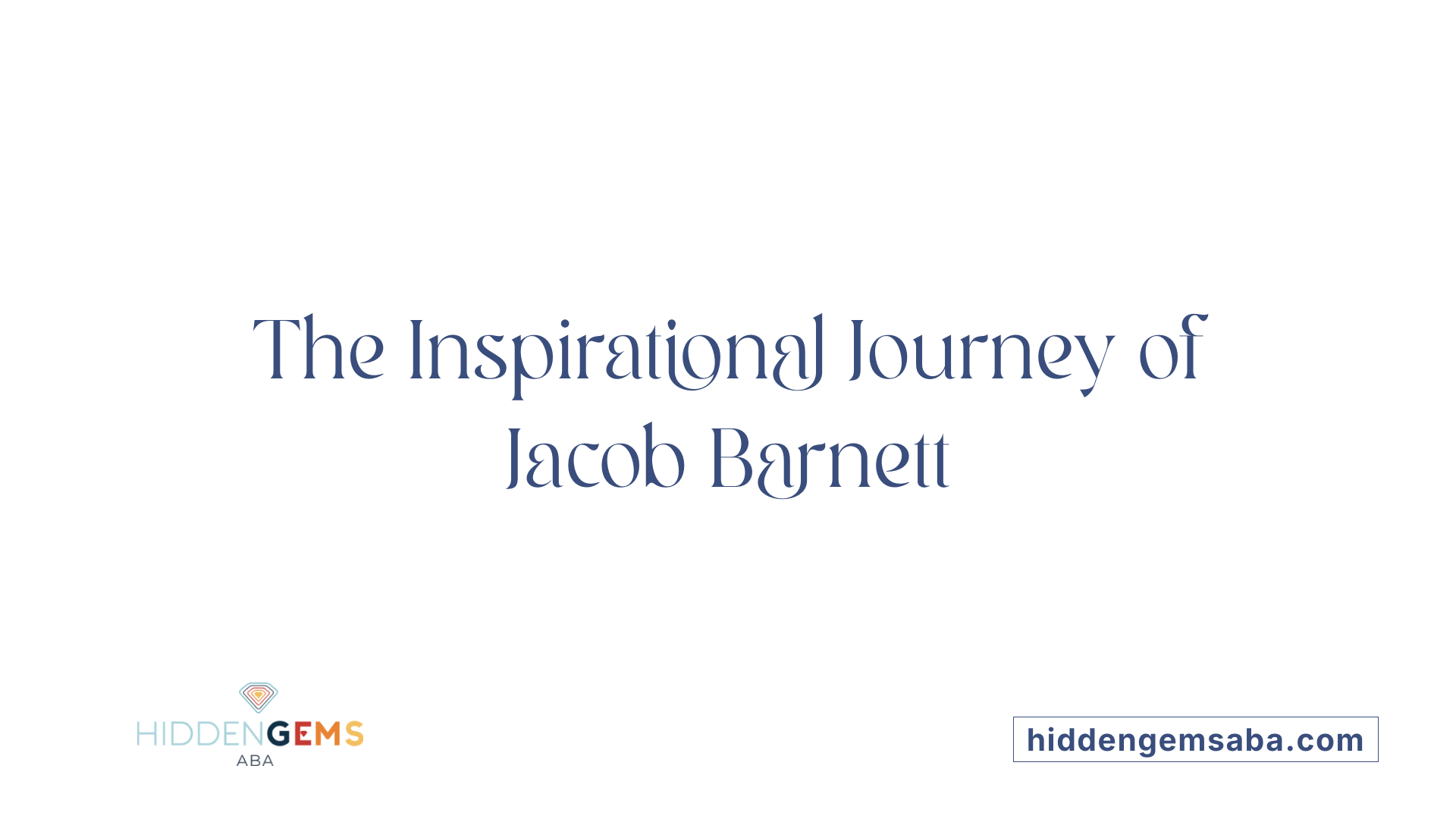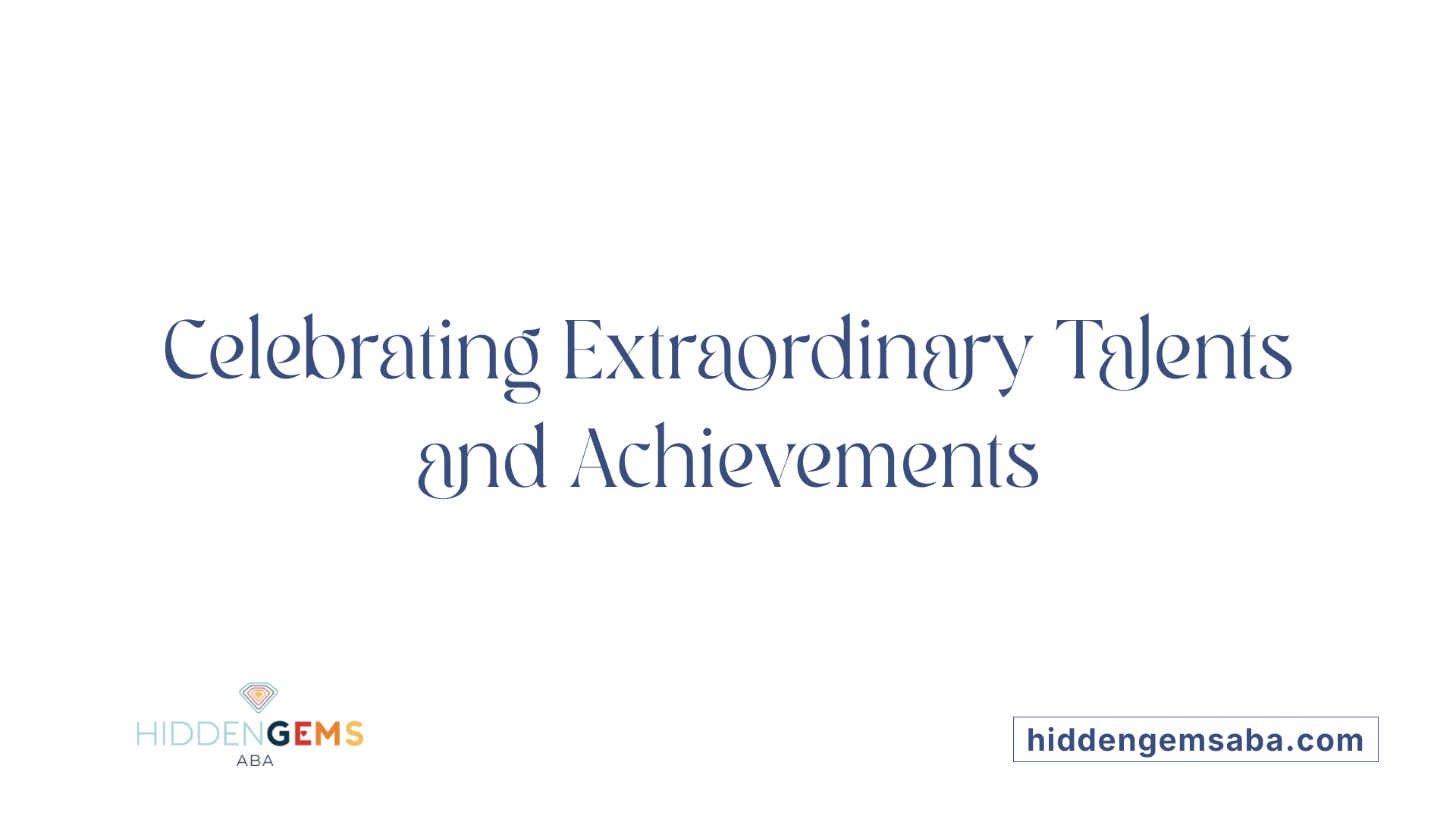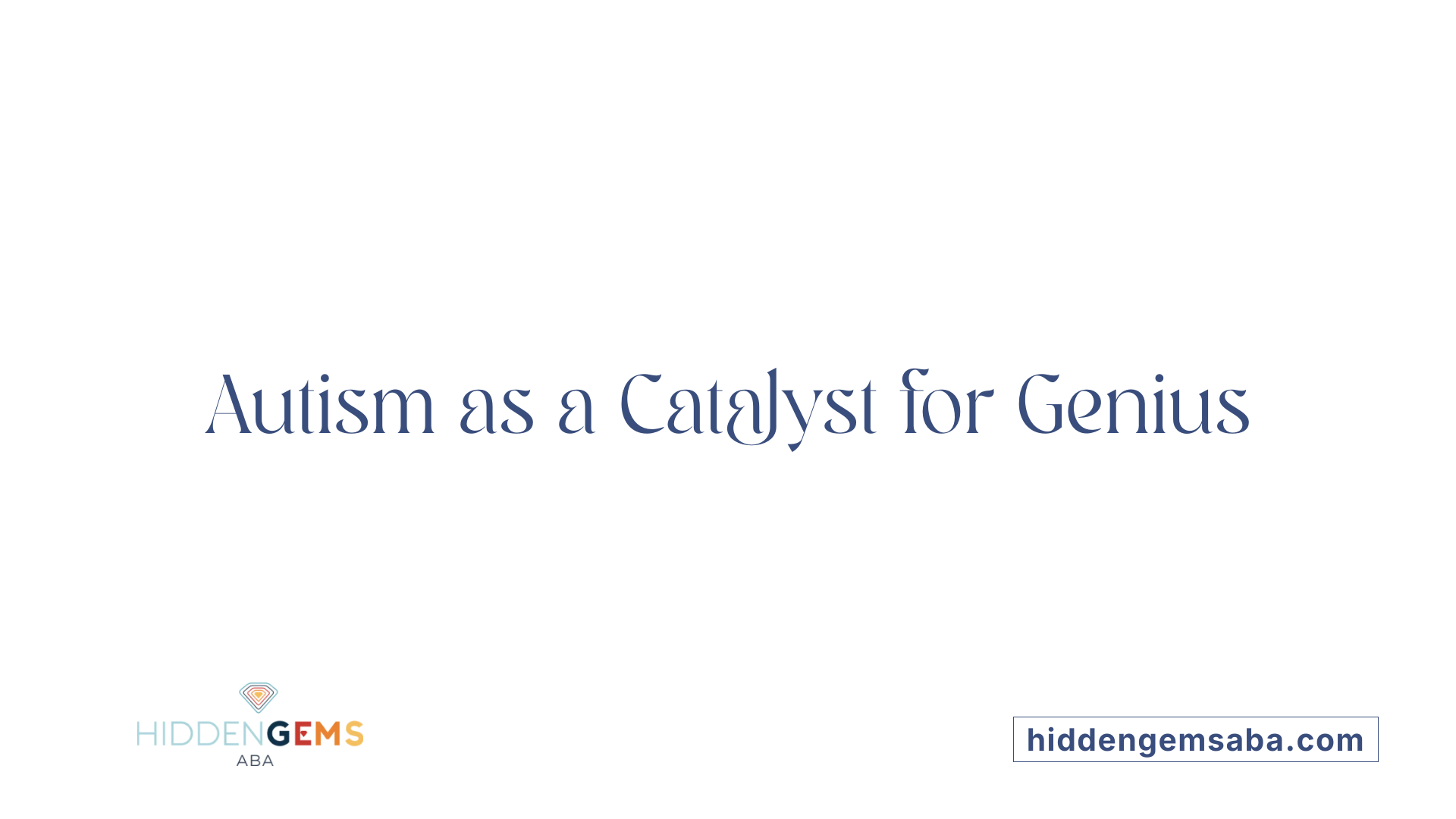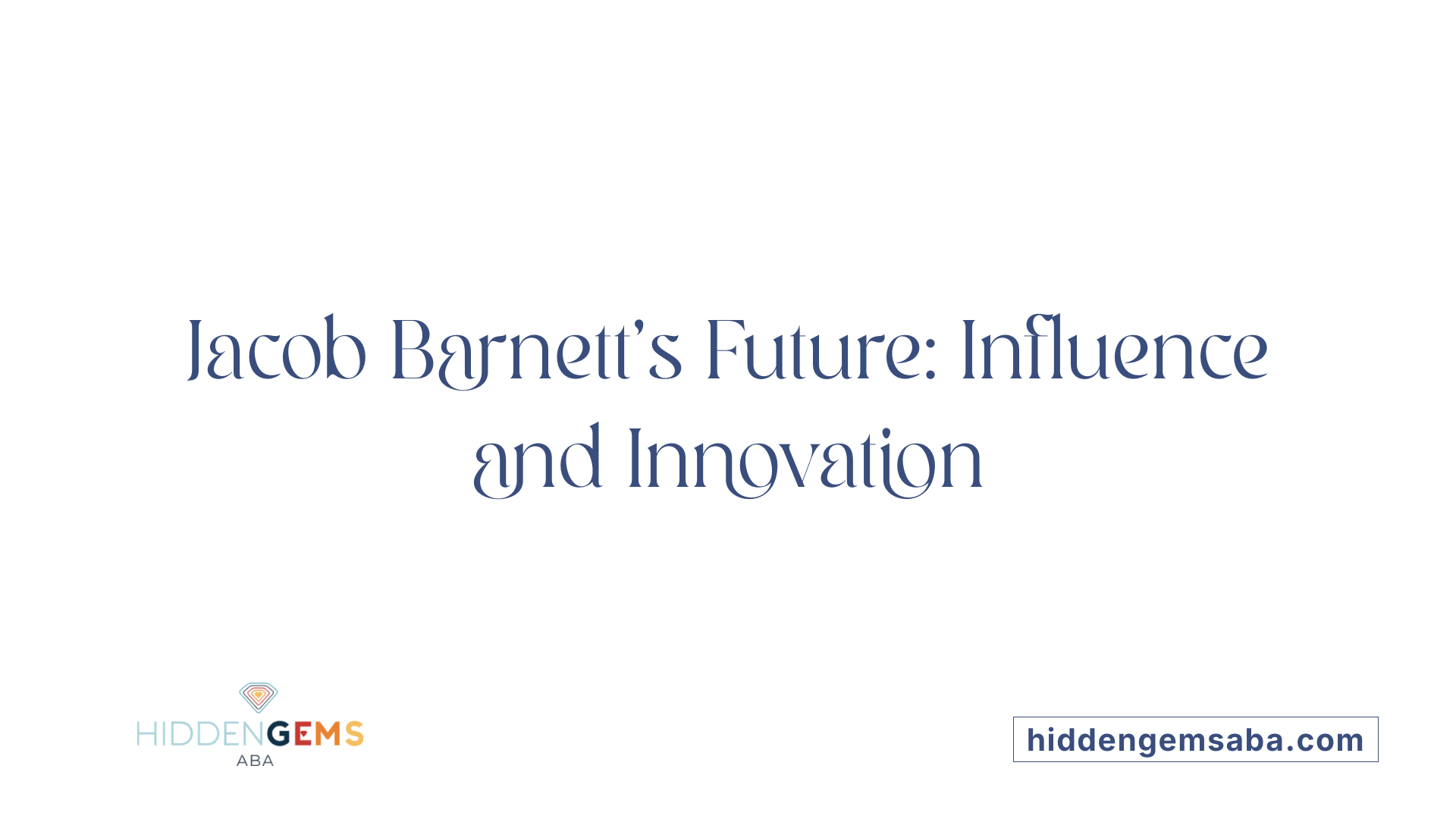A Deep Dive into Jacob Barnett’s Autism and Abilities
Jacob Barnett’s life story is a compelling narrative that challenges common perceptions of autism, illustrating how extraordinary potential can coexist with developmental challenges. From early childhood struggles to groundbreaking achievements in physics, Barnett’s journey prompts us to reconsider the relationship between neurodiversity and exceptional talent. This article explores his background, educational journey, talents, and how his autism may have contributed to his remarkable abilities.
Jacob Barnett’s Childhood and Personal Journey

What is known about Jacob Barnett's background and personal journey?
Jacob Barnett's life story is extraordinary and inspiring. Born in 1998, he was diagnosed with moderate to severe autism at age two. During his early childhood, he experienced a remarkable regression, losing speech and eye contact—a common challenge among children with autism. Despite these obstacles, Jacob’s mother, Kristine Barnett, took a proactive approach to his education and development.
She provided intensive, personalized support and focused on nurturing his interests in math and science. Her dedication paid off as Jacob began showing extraordinary abilities at a very young age. By the age of three, he was answering complex astrophysics questions, speaking four languages, and demonstrating advanced knowledge in astronomy.
His early passion for science led him to complete middle and high school curricula in just over a year. As a result of his rapid learning and intense focus, Jacob started college at age 10, making him one of the youngest students at this level. By age 13, he was already a published physicist, recognized for his high IQ of 170, which is higher than Einstein's. His curiosity and talent in physics propelled him to move to Waterloo, Canada, to study at the prestigious Perimeter Institute.
There, he submitted his master’s thesis at age 15 and continues to pursue advanced research, aiming to earn his Ph.D. and contribute significantly to the field of physics. His journey highlights how early support, passion, and a positive outlook on autism can lead to exceptional achievements.
This remarkable story is also detailed in his mother Kristine’s memoir, titled 'The Spark,' emphasizing that Jacob’s passions and dedicated family support played a crucial role in his development despite initial developmental delays.
What has been Jacob Barnett's educational journey?
Jacob’s educational path was accelerated and unconventional. After his diagnosis at age two, he began to show an incredible capacity for learning. By age three, Jacob was fluent in four languages, and he was already answering complex questions about astronomy and physics.
Within a short time frame, he completed curricula for grades six through 12. His ability to learn quickly allowed him to master high school math in just two weeks and taught himself high school-level mathematics before age eight.
At age eight, Jacob began attending college classes at Purdue University, focusing on physics and mathematics. His hunger for knowledge continued to grow. By nine, he was working on original astrophysics theories, contributing to scientific discussions.
His college journey continued when he moved to Waterloo, Canada, to study at the Perimeter Institute. At age 12, he was involved in graduate level research and submitted his master’s thesis at age 15. Currently, he is working towards a Ph.D. at the same institution.
Throughout his educational journey, Jacob demonstrated that with dedication and support, children with autism can achieve extraordinary academic feats. His story challenges traditional perceptions of developmental limitations and showcases the importance of fostering talents early.
| Stage of Education | Age | Achievement | Additional Details |
|---|---|---|---|
| Early Childhood | 2-3 | Regression and then extraordinary skills | Talking at age 3, answering astrophysics questions, speaking four languages |
| Middle & High School | 4-12 | Completed curricula in just over a year | Mastered high school math, interned in college courses, taught other students |
| Undergraduate College | 10 | Started at Indiana University | Youngest college student, accelerated learning |
| Graduate Studies | 15 | Master’s thesis at Perimeter Institute | Pursuing Ph.D., published research publications |
Jacob’s story exemplifies how early intervention, family support, and the nurturing of passions can lead to remarkable academic success—even against significant developmental challenges.
Exceptional Talents and Achievements Mirroring His Autism

The Role of Autism in Shaping Barnett’s Intellectual Landscape

What is known about Jacob Barnett's background and personal journey?
Jacob Barnett’s story is a remarkable example of overcoming early developmental challenges through passion and unique cognitive abilities. Diagnosed with moderate to severe autism at age two, Jacob faced significant setbacks, including a period of regression where he lost speech and eye contact. His mother, Kristine Barnett, played a vital role in his development, opting for an educational approach that prioritized his interests in math and science rather than conventional therapy. By age three, Jacob was not only speaking again but also demonstrating extraordinary knowledge in astronomy, answering complex astrophysics questions and even naming constellations. His early talents included mastering four languages, creating mathematical patterns, and solving advanced puzzles. His accelerated learning continued, and he completed middle and high school curricula in just over a year. At age eight, he was already self-teaching high school mathematics and auditing physics classes at Indiana University. His deep passion for science led him to begin college coursework at age ten. Jacob’s intellectual prowess is highlighted by his IQ score of 170, one of the highest ever recorded, surpassing even Einstein’s. His unique brain wiring, influenced by autism, is often cited as a factor in his exceptional memory and problem-solving skills. By age thirteen, he had already published research in physics and was on a fast track towards a Ph.D. His journey beyond early childhood involved moving to Waterloo, Canada, to study at the prestigious Perimeter Institute. There, he submitted his master’s thesis at age 15 and is currently engaged in doctoral research, focusing on advanced topics such as loop quantum gravity and quantum foundations. His life story is extensively documented in his mother’s memoir, 'The Spark,' which details his early regression, subsequent recovery, and transformative growth fueled by focused support and exploration of his passions.
What has been Jacob Barnett's educational journey?
Jacob Barnett’s academic trajectory is as extraordinary as his personal story. After his diagnosis with autism at age two, he exhibited signs of early exceptionalism, learning to read and speak by age three and answering questions about complex scientific topics. He quickly advanced through educational stages, completing curricula for middle and high school in a little over a year. His ability to learn was rapid and self-directed; he mastered high school mathematics in just two weeks, and by age nine, he was working on original astrophysics theories. His early interest in college-level topics led him to begin attending Indiana University at age ten, where he immersed himself in physics and astronomy. At age 13, he became a published researcher in a scientific journal. The pursuit of higher education took him to Canada, where he enrolled at the Perimeter Institute for Theoretical Physics. At just 15 years old, he earned his master’s degree and continues working toward his doctorate, demonstrating a dedication to exploration and research. His academic journey exemplifies how passion, early talent, and dedicated support can accelerate learning, challenging conventional timelines for education. Jacob’s story continues as he builds towards a promising future in physics, driven by an exceptional intellectual capacity rooted in his unique neurodiversity.
| Aspect | Details | Additional Notes |
|---|---|---|
| Early Diagnosis | Moderate to severe autism at age two | Led to intensive supportive interventions |
| Early Skills | Speaking, multiple languages, astrophysics questions | Demonstrated extraordinary memory and understanding |
| Accelerated Learning | Completed middle and high school curricula in 1+ year | Mastered high school math in 2 weeks |
| College Entry | Started at Indiana University at age 10 | Published in physics journal by age 13 |
| Graduate Studies | Master’s degree at age 15, Ph.D. ongoing at Waterloo | Research includes quantum gravity and physics |
| Personal Philosophy | Autism as a source of creative thinking | Believes autism contributed positively to his success |
| Impact and Recognition | TEDx speaker, published researcher, recognized by academia | Continues to inspire with his journey and work |
Jacob Barnett’s story emphasizes the importance of viewing autism not solely as a challenge but as a form of neurodiversity that can foster exceptional talents. His developmental milestones, academic achievements, and ongoing research serve as a testament to how focused support and embracing individual strengths can lead to extraordinary accomplishments.
Looking Ahead: Barnett’s Continued Influence and Research

What is known about Jacob Barnett's background and personal journey?
Jacob Barnett was diagnosed with moderate to severe autism when he was just two years old. His early childhood was marked by developmental regression, during which he lost many communication skills and was initially seen as having significant challenges. However, his mother, Kristine Barnett, dedicated herself to supporting his unique talents through intensive, personalized education rooted in his passions for math and science. By age three, Jacob was already demonstrating extraordinary abilities in astronomy, recital of complex scientific concepts, and even speaking four languages. He soon began mastering middle and high school curricula in just over a year, enabling him to start college at age 10. His dedication and natural talent led to remarkable achievements, including publishing a paper in the prestigious journal Physical Review A at age 13. Seeking further growth, Jacob moved to Waterloo, Canada, to attend the Perimeter Institute for Theoretical Physics, where he submitted his master’s thesis at age 15 and now pursues a Ph.D. He is a testament to resilience and exceptional intellectual potential, and his journey is detailed in his mother Kristine’s memoir, 'The Spark,' which emphasizes how early support and a focus on his passions fostered his success.
What are Jacob Barnett's talents and achievements related to his autism?
Jacob Barnett’s talents are extraordinary, especially considering his early diagnosis of autism. Despite facing developmental delays and being non-verbal for several months, he showcased an advanced aptitude for scientific and mathematical thinking. By age eight, he had mastered high school mathematics, and by 11, he was attending college courses, often self-teaching complex subjects like calculus within weeks. His photographic memory and rapid learning skills allowed him to quickly absorb advanced concepts, including quantum physics. He has contributed to scientific research in areas like quantum gravity, with publications in esteemed journals, demonstrating the tangible impact of his abilities in the academic community. Jacob’s achievements challenge stereotypes about autism, illustrating that with the right support and encouragement, individuals with autism can reach cutting-edge levels of scientific research and innovation. His story underscores a powerful message: autism can be associated with extraordinary talent and potential.
A Testament to Neurodiversity and Human Potential
Jacob Barnett’s extraordinary journey illustrates the profound impact that early support, passion, and neurodiversity can have in shaping remarkable achievements. His story underscores the importance of recognizing and nurturing unique talents in individuals with autism, challenging stereotypes, and highlighting that exceptional abilities often coexist with developmental differences. As Barnett continues his influential research in physics, his life encourages a broader understanding of autism as a spectrum of potential, not just challenge.
References
- Autistic Child Prodigy Jacob Barnett - Autism Parenting Magazine
- I am Jake - The Art of Autism
- Jacob Barnett, the youngest physicist with autism - مؤسسة الفلك ...
- Jake: Math prodigy proud of his autism - CBS News
- Jacob Barnett's Curious and Computational Mind - Pacific Standard
- Jacob Barnett | The Genius of Autism Wiki - Fandom
- Indiana Boy Genius Jacob Barnett - Indianapolis Monthly
- Jacob Barnett, From Diagnosed Autistic To An IQ Higher Than Einstein
- Perimeter Welcomes Exceptional Young Talent | PI News
- Jacob Barnett's Curious and Computational Mind - Pacific Standard


.avif)

